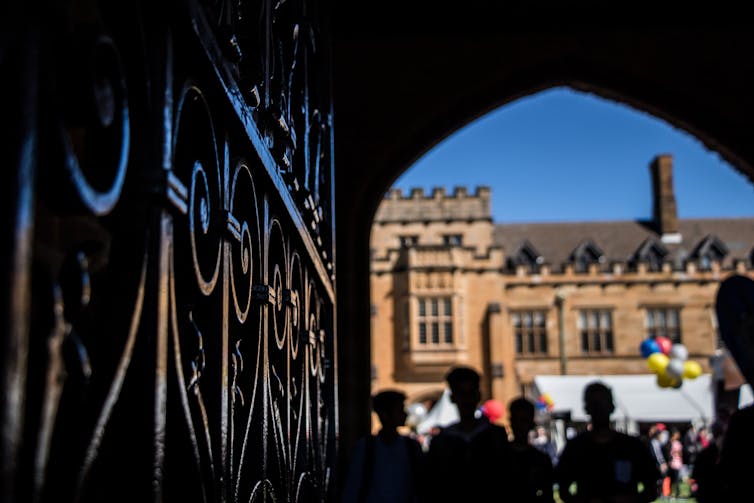Source: The Conversation (Au and NZ) – By Steven Burch, Lecturer in Accounting, University of Tasmania

Shutterstock
One of the priorities of the federal government’s sweeping Universities Accord is to improve employment conditions in higher education. This is long overdue.
Australia’s university sector once set the standard for working conditions but sadly this is no longer the case. Now the sector is plagued by an over reliance on casual staff, stress, burnout and precarious work conditions.
As of 2021, almost one third of Australia’s academic staff were employed as casuals, or contractors on a part-time basis.
Meanwhile, reports about underpayments and frequent strikes are making headlines. These have been accompanied by continued funding and staff cuts, along with increased expectations around performance.
Despite the high numbers of casual academic staff, surprisingly limited attention has been paid to their working conditions and experiences.
We conducted 20 interviews in the accounting discipline between May 2020 and November 2021. This field of study has a very high number of international students and was hard hit by COVID and job losses. Interviewees were a mix of aspiring academics, industry experts and freelancers (who were working in universities as part of a mix of jobs).
Three themes emerged from our research about their experiences.
Read more:
The Universities Accord will plan for the next 30 years: what big issues must it address?
1. Heavy workloads
Previous research on higher education in general has found staff experience stress, poor work quality and burnout. Our casual interviewees spoke at length about huge and unreasonable workloads. This was particularly so when it came to marking, as one interviewee explained:
It’s 1,000 words [per assignment] and we get paid approximately ten minutes [per assignment]. I can’t read, process it, and try to give good feedback. I feel like I’m just chained onto the table like some sort of slave to be honest, because it has to be done by a certain time.
This echoes research on the broader higher education environment, where high workloads impact both casual and permanent staff. Another interviewee told us:
To be honest, for the amount of pay we get, the amount of work we do, if you look at it on is it worth it? No. It’s because of passion. I love what I do.

Shutterstock
2. Lack of recognition and respect
Our interviewees emphasised a clear division exists between permanent and casual staff. This can include not having a say in decisions or course content or not having senior staff checking in. It can also extend to being treated poorly by unit coordinators. As one interviewee noted:
You do feel some of them do treat you like an idiot.
This treatment can extend beyond work duties to social events and separate work areas.
there will be a dinner or something that only tenured staff is invited to, you are treated like a second-class citizen.
Another interviewee told us:
The sessionals [casuals] had an area like open plan offices and the tenured people had their own offices. So, it was like, the difference was made quite clear in that way.
3. Constant insecurity
During the pandemic, casual academic staff were the first to lose work when universities faced revenue shortages caused by the loss of international student fees.
Data on full-time equivalent university staff shows between 2020 and 2021, 15% of casuals
lost their jobs, compared to 7% of full-time workers.
Interviewees spoke about their frustrations, not knowing if they would have a job from one semester to the next. For some, it took a toll on their wellbeing and sense of self.
It’s very stressful, particularly with uncertainty […] I feel like I’m worthless.
Another interviewee similarly explained:
Never knowing what amount of teaching you are going to have next semester makes you feel really expendable.
Read more:
Universities had record job losses, but not as many as feared – and the worst may be over
What the Universities Accord should note
Casual academics have an essential role educating some of the brightest young minds in our society for exciting careers. Yet their own careers do not have the same prospects. And their work does not necessarily give them a sense of dignity or self-worth.

Shutterstock
This not only affects casual academics’ morale and wellbeing, but undermines universities’ commitment to quality teaching and learning.
Both casual academics and universities would benefit from better, more respectful working conditions for casual staff. Casuals need their work to be recognised, a greater sense of inclusion and more pathways to progress their careers. Otherwise, it is hard to see how this employment model – that has become so important to higher education – is sustainable.
![]()
The authors do not work for, consult, own shares in or receive funding from any company or organisation that would benefit from this article, and have disclosed no relevant affiliations beyond their academic appointment.
– ref. ‘Some of them do treat you like an idiot’: what it’s like to be a casual academic – https://theconversation.com/some-of-them-do-treat-you-like-an-idiot-what-its-like-to-be-a-casual-academic-201470







